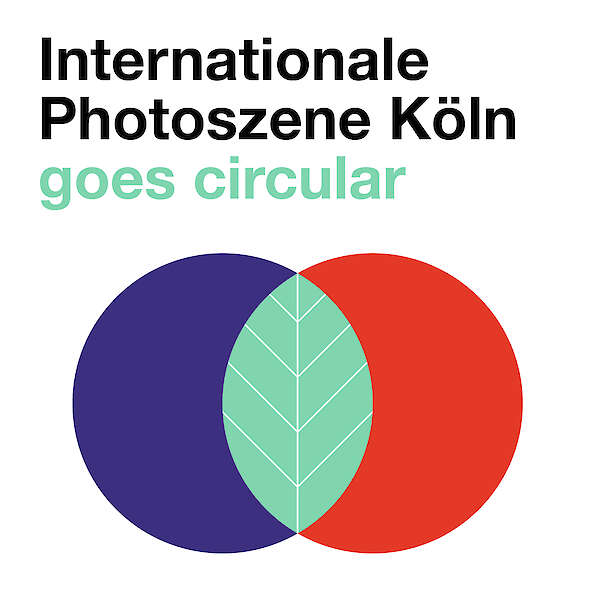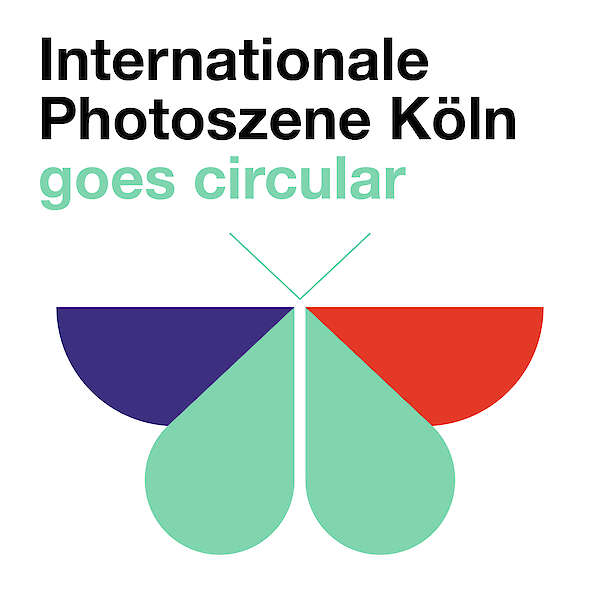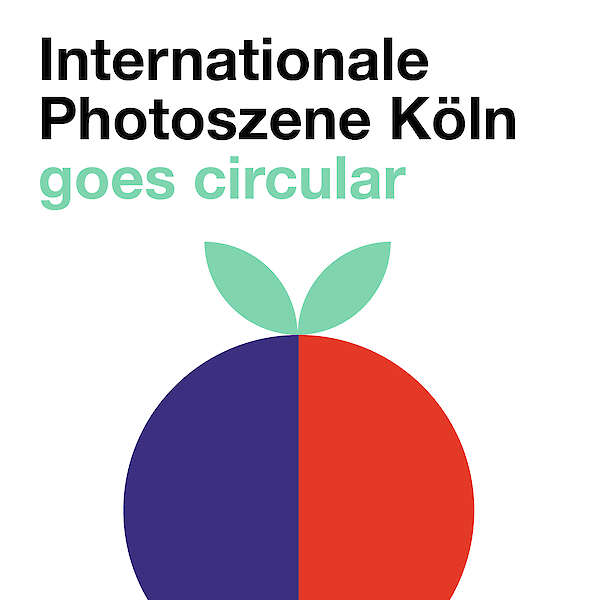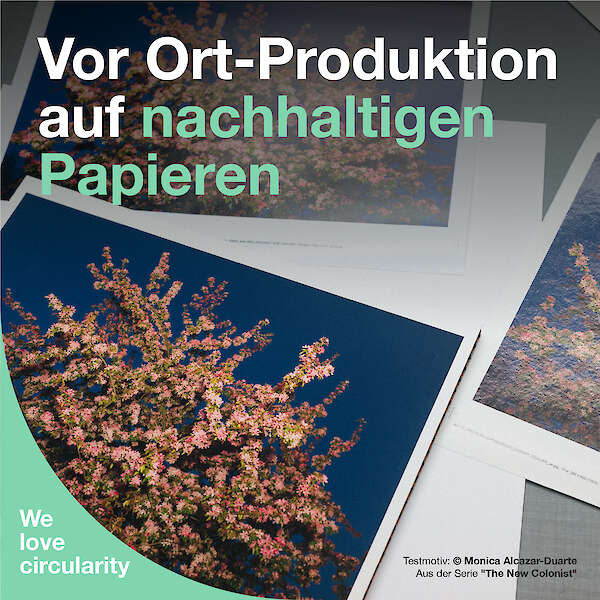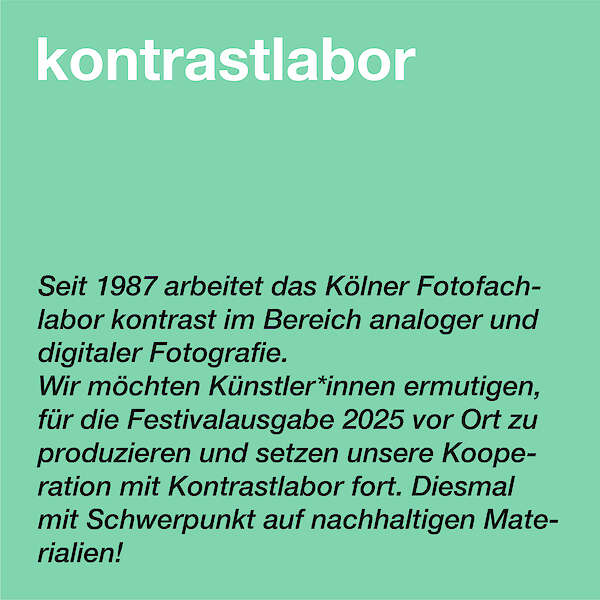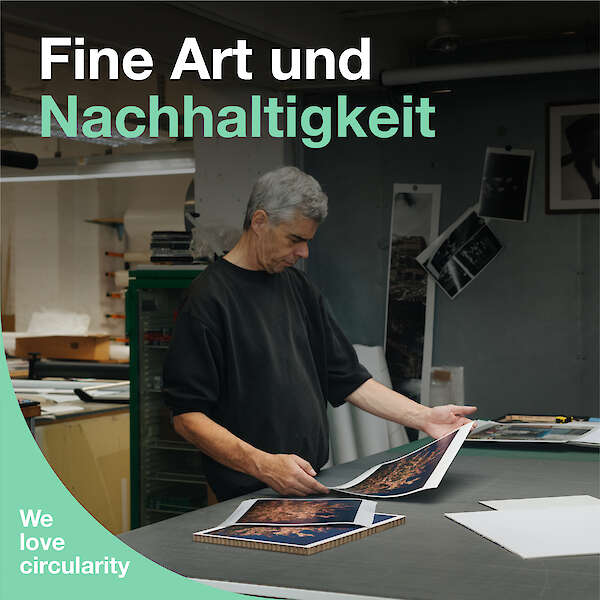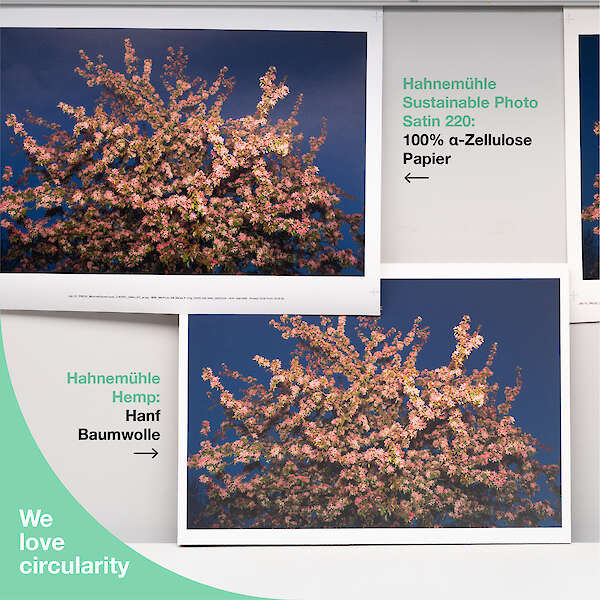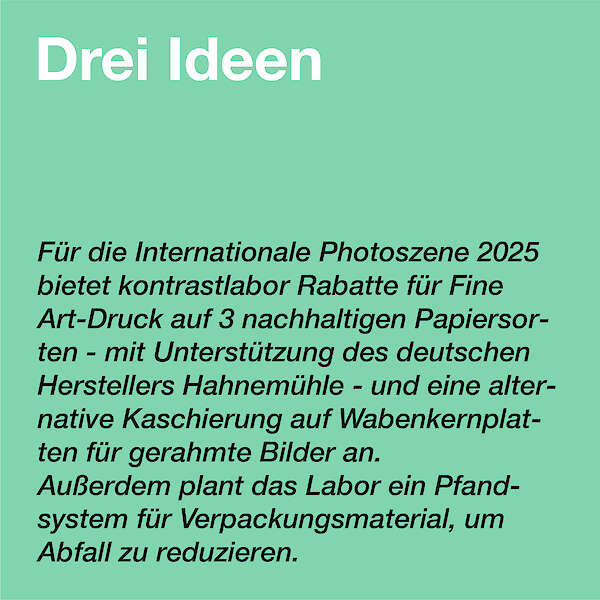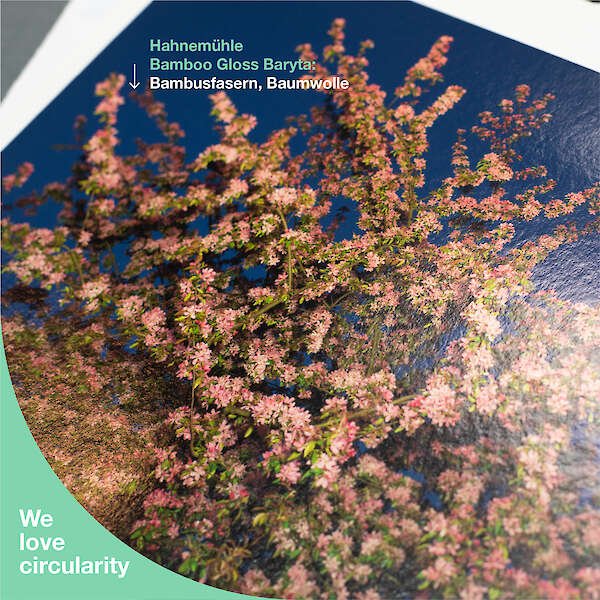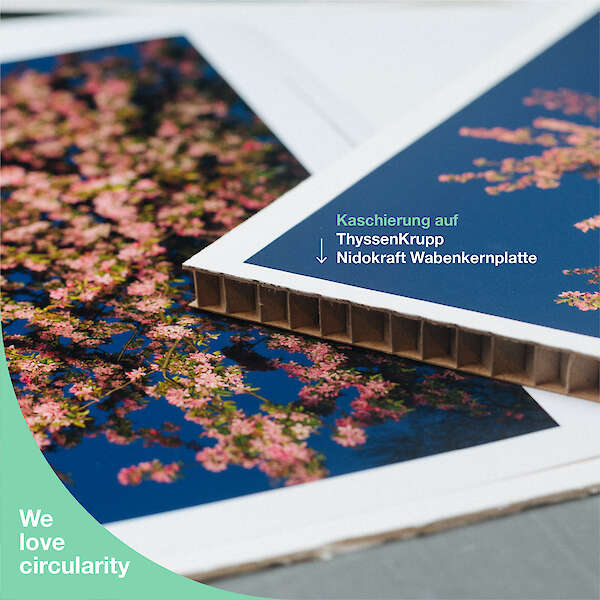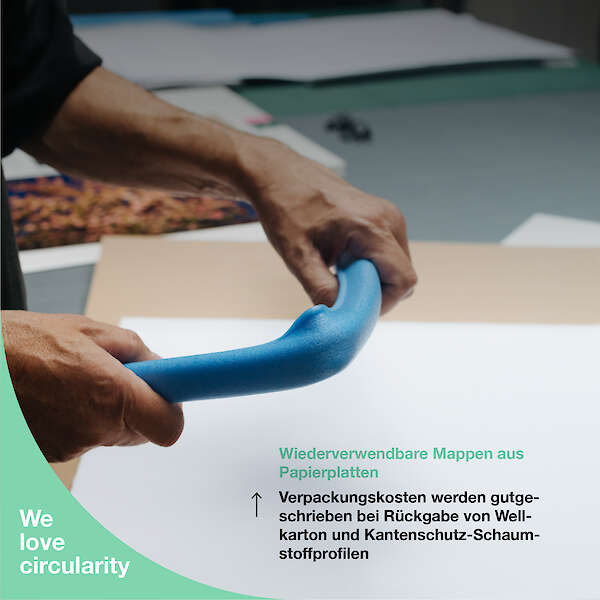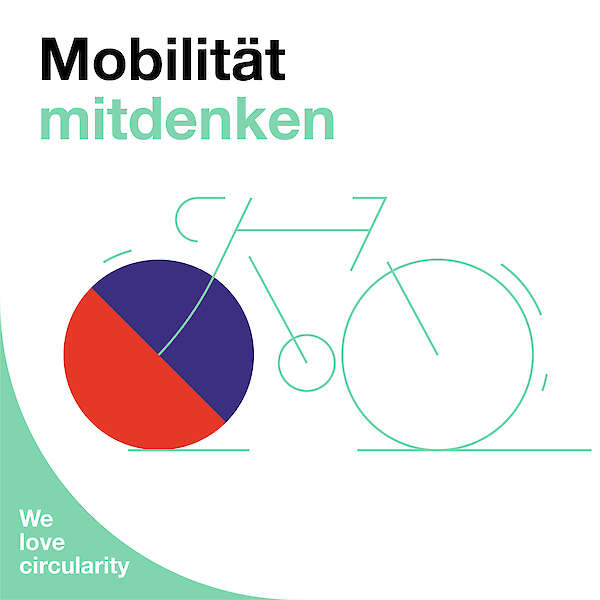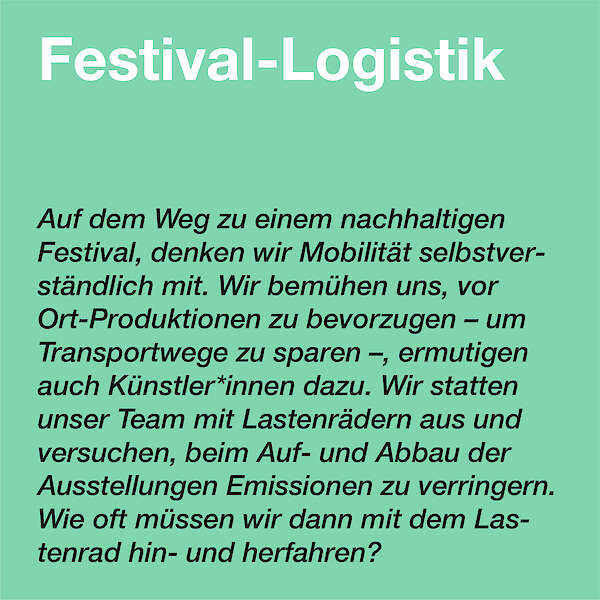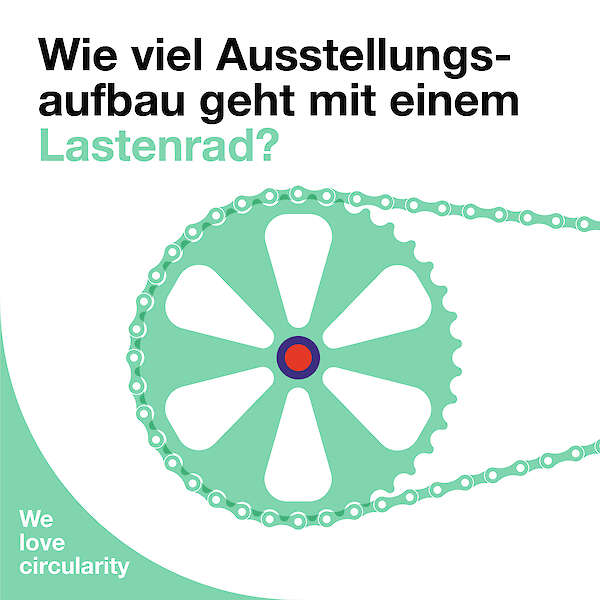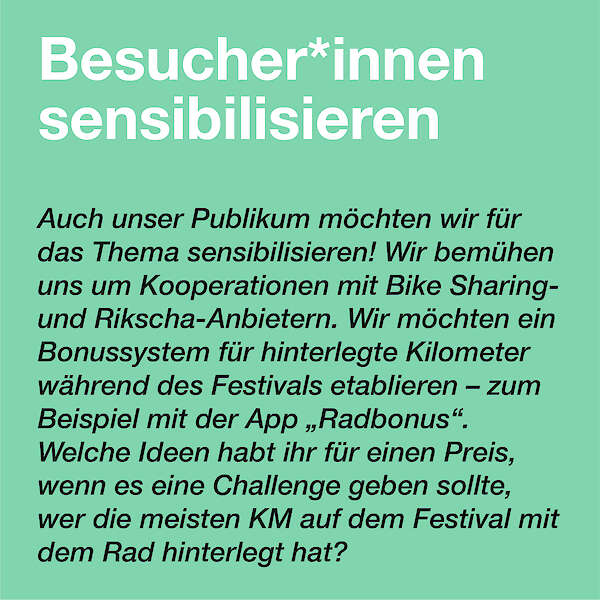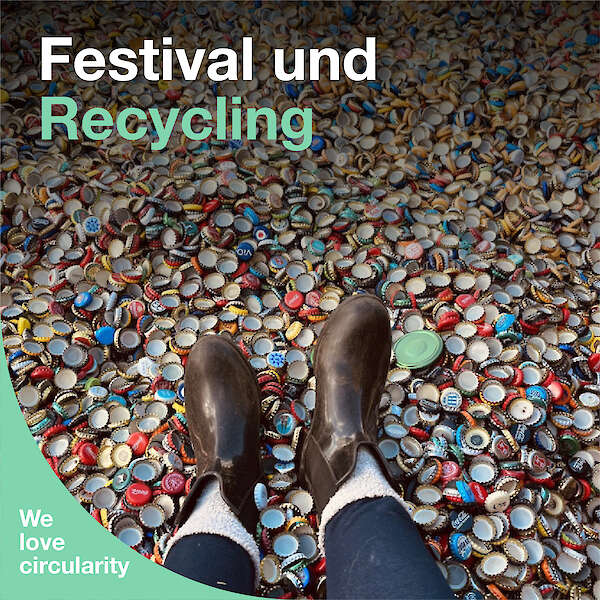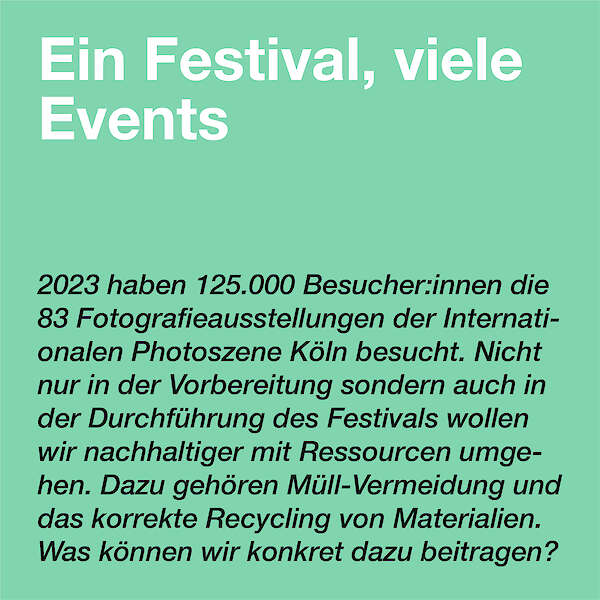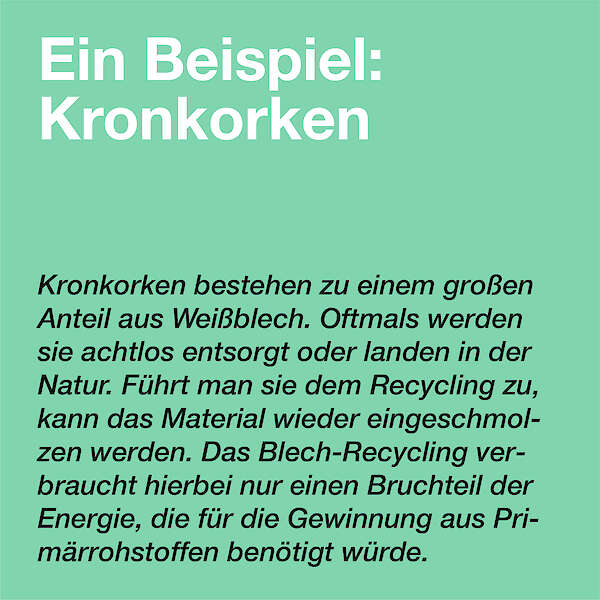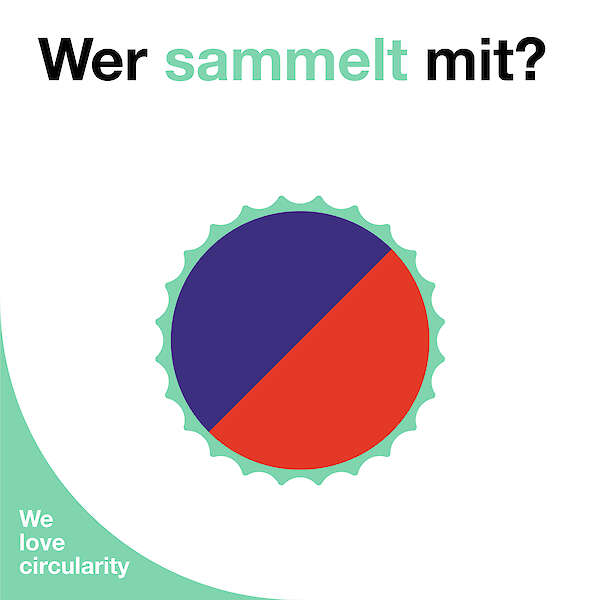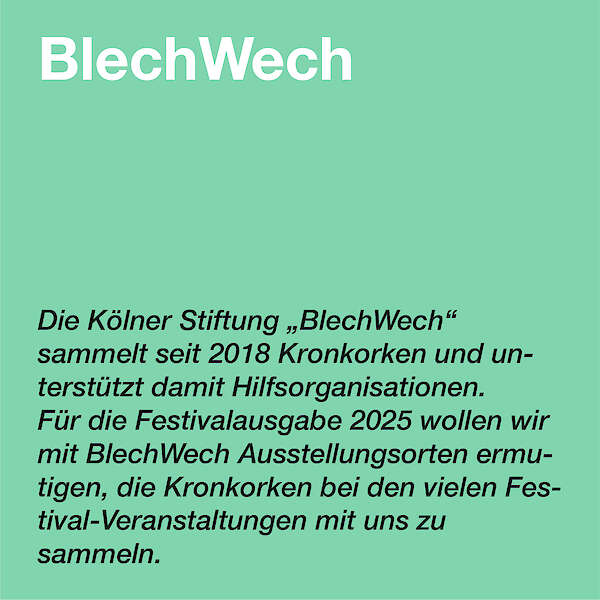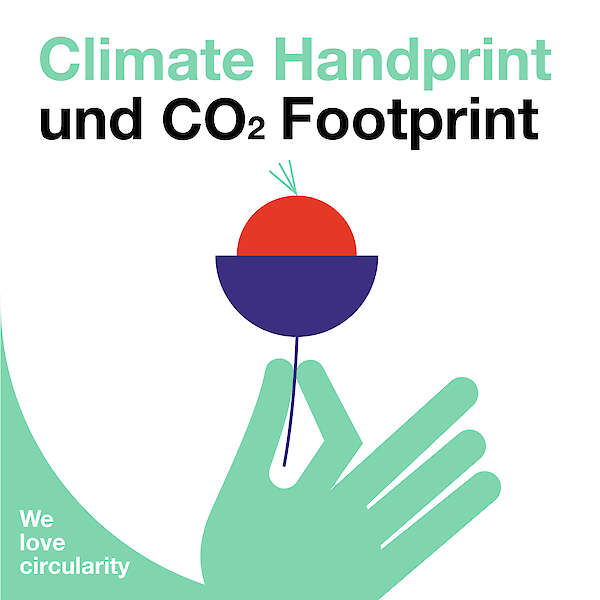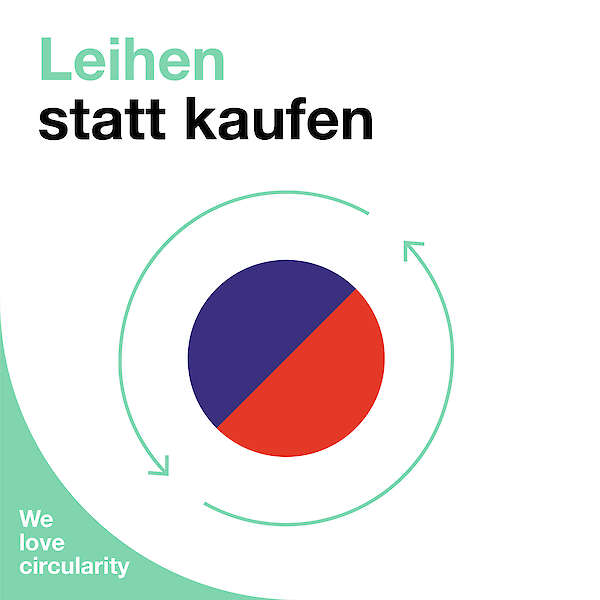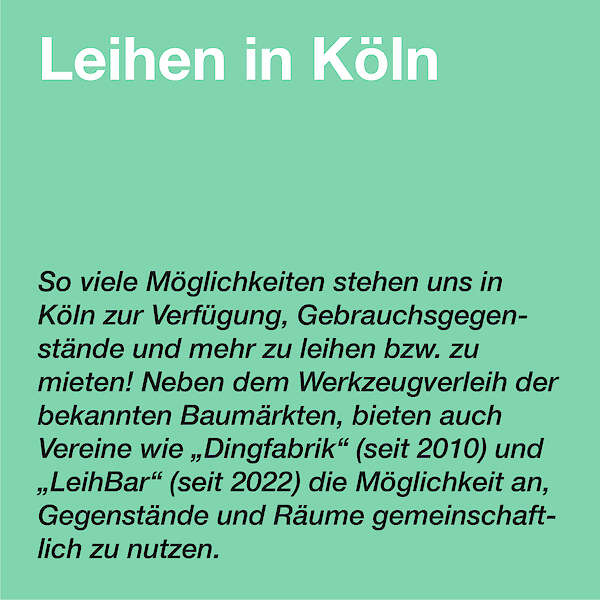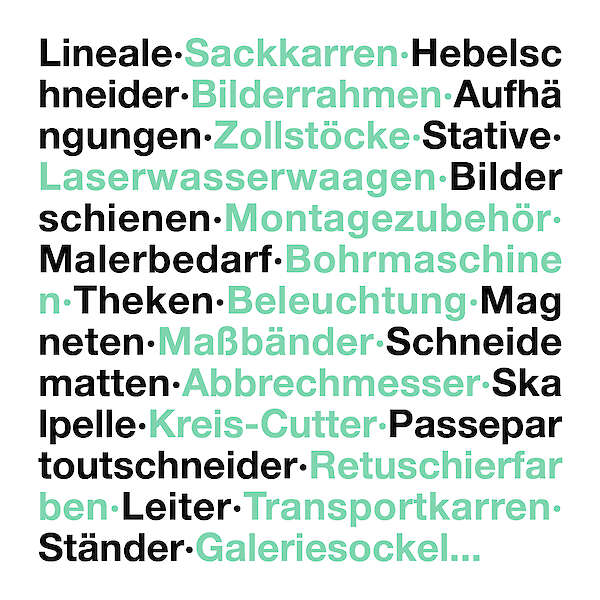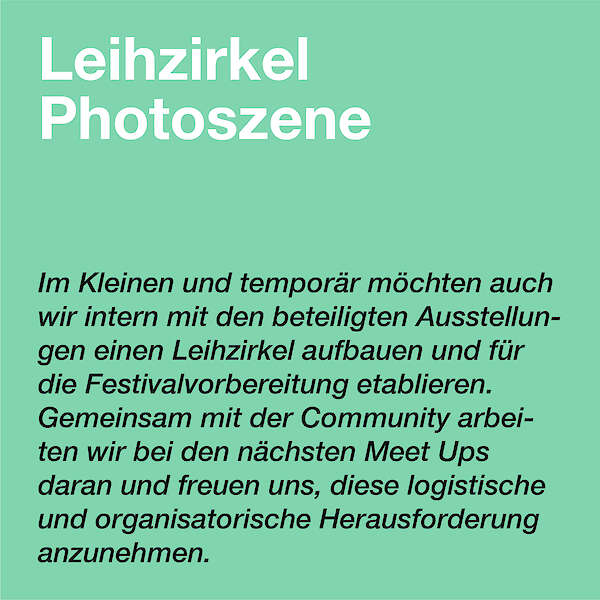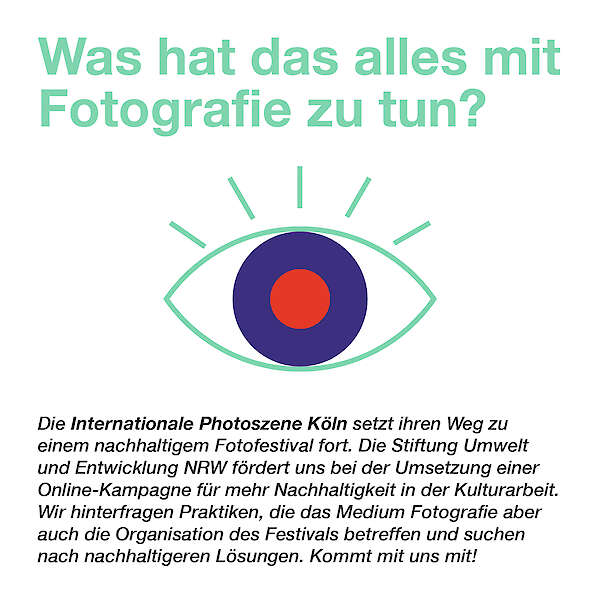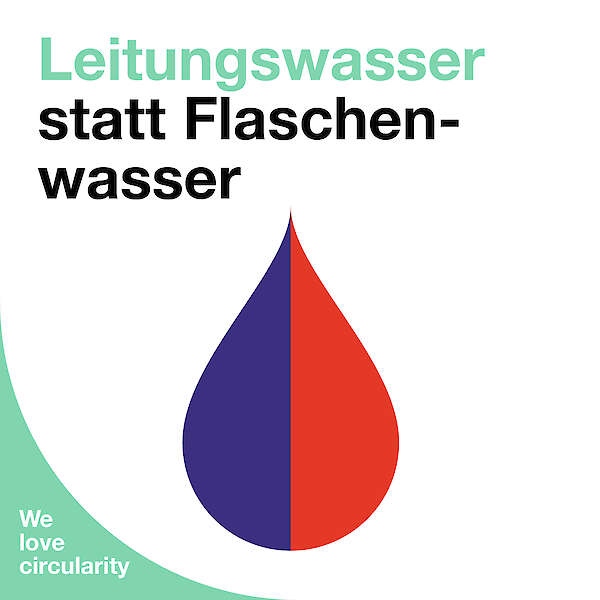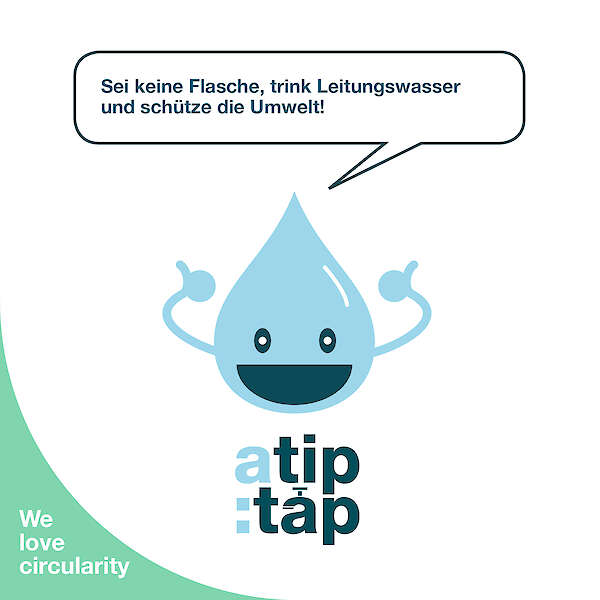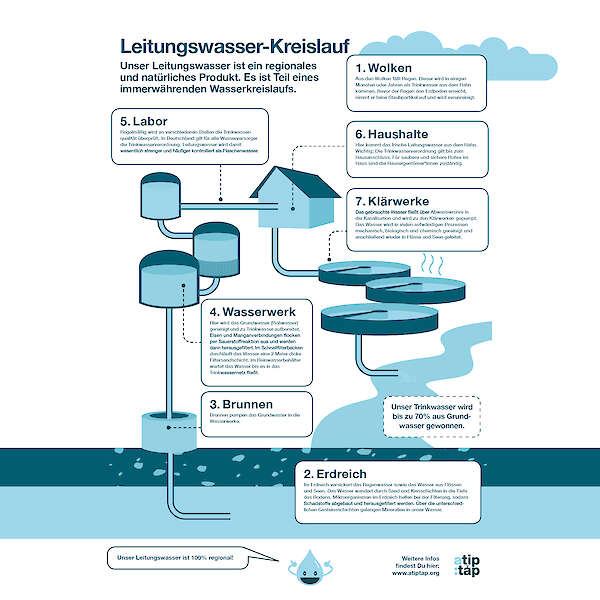
Photoszene-Festival
loves the Circular
The Internationale Photoszene Köln is continuing on its path towards a sustainable photo festival. The Foundation for Environment and Development of the State of North Rhine-Westphalia is supporting the festival organization in the implementation of an online campaign for more sustainability in cultural work.
For the 2025 edition of the festival, the Internationale Photoszene Köln has set itself the goal of minimizing the environmental impact of its exhibition practice, festival organization and audience and raising awareness of the idea of a circular economy for culture.
In the coming weeks, Photoszene's online presence will report on various practices of sustainable cultural creation via the website and social media, meet project operators and “green” initiatives from Cologne and present them:
Datenlage
What gets measured gets managed
In 2023, as part of a training course on sustainability, we gained an initial picture of the available data relating to our festival. After all, Peter Drucker's famous quote applies to every sustainability concept: only what can be measured can be managed well.
A decentralized photo festival in Cologne
How can a completely decentralized festival be made more sustainable? How do we involve partner institutions and visitors? We are publishing some exciting figures on the International Photoscene Cologne here, which have helped us to identify potential for improvement and define concrete measures for the next festival edition.
We love circularity
Ein Rückblick
About sustainability
The International Photoscene Cologne has set itself the goal of making the next festival edition as sustainable as possible. Over the past few weeks, we have reported on various practices of sustainable cultural creation, presented project operators and “green” initiatives from Cologne and questioned our own exhibition practices.
Words are important
In the course of our campaign, we have presented concepts and terms that can provide sustainable impetus and have a positive impact. Because we firmly believe that words are important! For a sustainable transformation, we urgently need concepts that encourage us - instead of frustrating us.
Climate Handprint
The #ClimateHandprint shows how we can reduce our carbon footprint and actively do something for the environment. The new term makes positive contributions to climate protection visible!
Butterfly diagram
The butterfly diagram illustrates the idea of a circular economy, in which the intensification of the useful life and recyclability of materials is considered from the outset.
About the use of resources
In 2023, 125,000 visitors attended the 83 photography exhibitions during the Photoszene Festival in Cologne. We want to be mindful of resources, not only in the preparation, but also in the implementation of the festival. What can we contribute to this in concrete terms? In the campaign, we have presented some possibilities.
- Borrowing instead of buying
- Tap water
If we switch to tap water for the event catering and do without bottled water, we not only reduce waste, but also CO2, as there is no need to transport bottles.
Recycling
During the festival, a wide variety of materials are generated that we want to reuse or make available. Not every exhibition will have the necessary storage space for this. We will find a solution to this. However, there are already many great ideas on how we can avoid waste together during the festival and recycle materials correctly.
Sustainability and mobility
On the way to a sustainable festival, we absolutely have to think about mobility. As a completely decentralized photo festival, we not only want to make our own logistics low-emission, but also initiate discussions in the community and encourage our partners and visitors to adopt more sustainable mobility themselves.
On-site productions
We strive to give preference to on-site productions - to save transport routes and thus avoid emissions - and initiate cooperations to offer better conditions for artists.
Festival logistics
We equip our team with cargo bikes and try to reduce emissions when setting up and dismantling the exhibitions. We strive to cooperate with bike sharing and rickshaw companies in order to sensitize our audience to the issue.
Environmentally friendly printing
In recent weeks, we have presented two concrete proposals for environmentally friendly production here in Cologne: “risography”, a Japanese printing process from the 1980s, which is currently being rediscovered due to its sustainability. And some environmentally friendly options for classic fine art prints in the specialist laboratory.
Risography
Risography is a particularly sustainable printing process.
The ink is based on soybean oil or rice bran oil, and the master films are made from hemp and banana leaf fibers.
Fineart - sustainable
In 2025, we are continuing our cooperation with the Cologne-based photo lab kontrast. This time with a focus on sustainable fine art papers and materials.
Sustainable print idea
Riso Postcards
We printed beautiful postcards for our campaign at Studio Rosi in Ehrenfeld! The motifs were designed by Luisa Zanzani and printed using the risography process, which we have already presented in an earlier video.
Risography is a particularly sustainable printing process and produces unique, vibrant results with every print. 🌈
These postcards are a small, colorful step towards sustainable festival design. Have you ever experimented with risography? 👇
Circular economy and butterfly diagram
Circular economy means thinking about the intensification of the useful life, the possibility of repair and the recyclability of individual parts as early as the design and manufacture of products. If we think about the organization of the photo festival, we focus on the production of the exhibition exhibits, the exhibition architecture, the print products and the on-site signage system.
We can initiate important sustainable processes as early as the selection of materials, for example by using natural materials in the design of temporary spaces. According to the butterfly diagram of the Ellen Mc Arthur Foundation, there is the organic and the technical cycle. Temporary exhibition formats such as photo festivals without their own premises often do not have their own depot, fund or material store.
A photo festival primarily produces exhibitions and the question of how the usability of a photograph/exhibition can be intensified, repaired or recycled is one we naturally have to ask ourselves. Does this mean that we have to produce fewer exhibitions? Can we create longer exhibition durations?
For 2025, we have extended the duration of the festival to four weeks. Nevertheless, we cannot set this duration for the participatory format, as this is hardly feasible given the scarcity of space for art and culture in the independent scene (shortage of space, high rents).
Works can be professionally archived and thus have a long shelf life if archived correctly, exhibitions can travel. Do you have any other ideas? 👇
As users of objects and consumers, we can enter the diagram and use or consume products made from already recycled materials, etc. ♻️🌿
Alternative printing processes: Risography
We visited Studio Rosi in Ehrenfeld and were able to gain an insight into the special printing process of risography.
Risography is a Japanese printing process similar to screen printing and offers a more sustainable alternative to conventional printing methods. The ink is based on soy or rice bran oil - a waste product from rice production. Master films are made from hemp and banana leaf fibers. The Riso does not use toner, therefore consumes less energy and produces no fine dust.
Riso is never perfect, which is precisely what makes it so exciting - very special unique pieces can be created if you get involved in the experiment.
Can you imagine printing your own projects with the Riso?
Thanks to Benedikt Partenheimer for providing his motif 'Methane experiment, Alaska 2017', from the series: Memories of the Future and his joy in experimenting and his commitment to sustainability. 🙏
Local production on sustainable papers
kontrastlabor
The Cologne-based photo lab kontrast has been working in the field of analog and digital photography since 1987.
We would like to encourage artists to produce on site for the 2025 edition of the festival and are continuing our cooperation with Kontrastlabor. This time with a focus on sustainable materials!
Fine art and sustainability - Three ideas
For the International Photoscene 2025, kontrastlabor offers discounts for fine art printing on 3 sustainable paper types - with the support of the German manufacturer Hahnemühle - and an alternative lamination on honeycomb core boards for framed pictures, as well as a deposit system for packaging material to reduce waste.
- Hahnemühle Sustainable Photo Satin 220: 100% α-cellulose paper
- Hahnemühle Hemp: hemp cotton
- Hahnemühle Bamboo Gloss Baryta: bamboo fibers, cotton
- Reusable folders made from paper plates
- Packaging costs will be credited if corrugated cardboard and edge protection foam profiles are returned
The test motif is from the series “The New Colonist” by the artist Monica Alcazar-Duarte, who deals with the current efforts of space exploration in this work.
Thinking mobility
Festival logistics
On the way to a sustainable festival, we naturally take mobility into account. We strive to give preference to local productions - to save on transportation - and also support and encourage artists to do so. We equip our team with cargo bikes and try to reduce or avoid emissions when setting up and dismantling the exhibitions. How often do we have to travel back and forth by cargo bike?
Raising awareness among visitors
We also want to sensitize our audience to the topic and win them over! We are looking to cooperate with bike sharing and rickshaw providers. We would like to establish a bonus system for deposited kilometers during the festival - for example with the “Radbonus” app.
Festival and Recycling
One festival, many events
In 2023, 125,000 visitors attended the 83 photography exhibitions of the International Photoscene Cologne. We want to use resources more sustainably not only in the preparation but also in the implementation of the festival. This includes avoiding waste and recycling materials correctly. What concrete contribution can we make?
One example: crown corks
A large proportion of crown caps are made of tinplate. They are often disposed of carelessly or end up in nature. If they are recycled, the material can be melted down again. Recycling tinplate consumes only a fraction of the energy that would be required to extract it from primary raw materials.
BlechWech
The Cologne-based “BlechWech” foundation has been collecting bottle caps since 2018 to support aid organizations, and for the 2025 edition of the festival, we want to use BlechWech to encourage exhibition venues to collect the bottle caps with us at the many festival events.
Handprint - Inspiration statt Frustration
The concept of the so-called “handprint” was developed in 2007 by the Centre for Environment Education (CEE) in India. The ClimateHandprint shows and measures what we can do to keep our carbon footprint small.
The second Cologne Climate Week, which takes place from 23.09. - 29.09., also shows this. The program is super interesting and varied.
We would particularly like to draw your attention to the guided tour of the first climate-neutral exhibition at Museum Ludwig on Friday, September 27 at 4 pm with curator Dr. Miriam Szwast.
The number of participants is limited to 25 people and the meeting point is at the information desk. The tour is free of charge, only the museum entrance fee is charged.
What does the Handprint mean for us as a photo festival?
When developing the sustainability concept for the Photoszene Festival, we identified the following areas for the Handprint. These are the areas that we can positively influence together despite the participatory concept:
-production of the exhibits
-Production and reduction of the print products
-mobility of the artists and speakers
-mobility of the festival visitors
-Transport routes for exhibition set-up
-Catering and drinks for openings, artist talks and other events
-Conversion from conventional electricity to green electricity, if possible
At the first meet-ups, we already received positive feedback from the 50 or so participants on the topic of sustainability and the upcoming changes. Let's continue at this point!
Save the Date: Monday, October 07 or Tuesday, October 08, 7 - 9 p.m.
The next Meet Ups will focus on sustainability.
An invitation will follow shortly. We look forward to seeing you there!
Borrowing instead of buying
There are so many options available to us in Cologne for borrowing or renting everyday objects, tools, furniture, clothing, vehicles and much more.
In addition to the well-known DIY stores, we can certainly ask private circles or visit the Dingfabrik's open workshop with a specific project. The association, which has existed in Cologne since 2010, sees itself as a combination of open workshop, maker/hacker space and FabLab. The Dingfabrik offers rooms and machines for members and the public.
Another young initiative is LeihBar. The association was founded in December 2022 with the conviction that lending items can create added value for society.
Around 10 people are currently involved in the LeihBar on a voluntary basis. In order to be able to offer more opening days, the LeihBar is looking for more people who would like to volunteer.
Tools can be borrowed twice a week at the Schmitzundkunzt - so geht Nachbarschaft e.V., centrally located in the Belgian Quarter. The association also offers other sustainability-related activities such as repair cafés, (clothes) swap meets, bicycle workshops, etc.
On a small scale and temporarily, we would also like to set up a lending circle internally with the participating exhibitions and establish it for the festival preparations. We are working on this together with the community at the next Meet Ups and look forward to taking on this logistical and organizational challenge. After all, there are certainly many items that were obtained for one or other past exhibition and are no longer needed, but could be useful for others.
Tap water instead of bottled water
In preparation for the Photoszene Festival 2025, we want to think more in cycles and reduce and avoid waste, intensify the use of resources and materials and reuse them after they have been used.
Why tap water?
If we switch to tap water for the event catering for visitors and our own consumption and do without bottled water, we not only reduce waste, but also CO2, as the transport of distribution channels and production is eliminated.
The Photoszene-Festival, a biennial event in Cologne, celebrates not only the art of photography, but also the diversity and openness of the city. With a rich history that has shaped Cologne's artistic aura for decades, the festival provides a platform for photographers from all over the world to exhibit their work and enter into a dialogue with the urban space. This event creates encounters that reflect both the diversity of the participating artists and the heterogeneous urban landscape of Cologne. The festival sees itself not only as an exhibition, but also as a place of exchange and reflection that encourages visitors to scrutinise the interactions between art, society and history. In a city known for its creativity and authenticity, the Photoszene-Festival shows how art and social awareness can intertwine. The focus on sustainability and ethical practices takes the event to a level that goes far beyond the purely aesthetic and contributes to the ongoing discussion about the responsibility of art in today's world. Cologne, with its unmistakable blend of joie de vivre and intellectual sophistication, provides the ideal backdrop for a festival that is characterised as much by inclusivity as it is by artistic innovation.
Köln Tourismus
